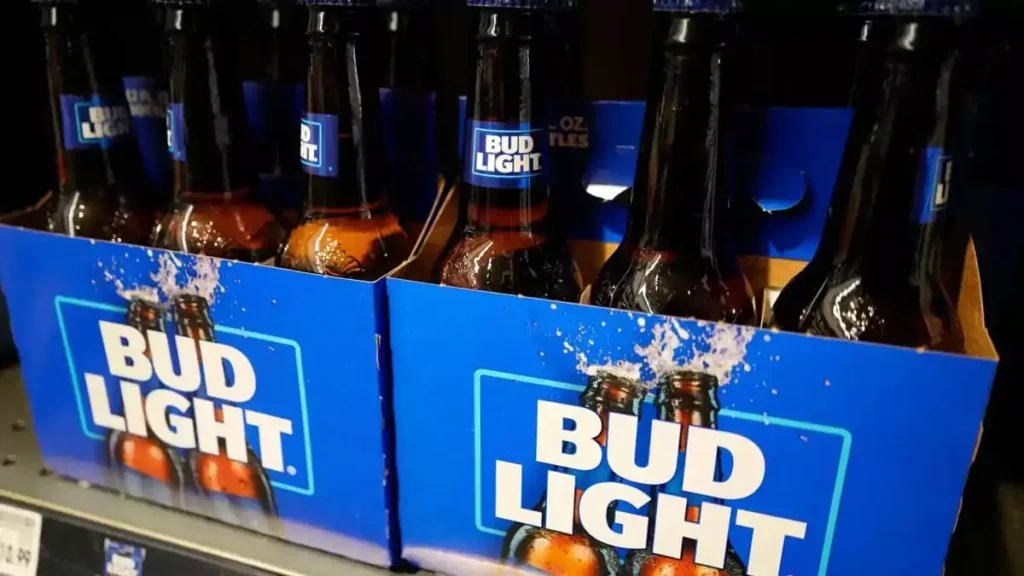In a year marked by the Dylan Mulvaney campaign, the beer industry faced its lowest sales in 24 years. Bud Light’s tie-up with Dylan Mulvaney triggered a massive decline, with sales plummeting over 5% in the first nine months. Industry experts cite changing habits among younger drinkers and the fallout from the Dylan Mulvaney fiasco as key factors. Bud Light’s steady decline, losing its two-decade reign as the top-selling beer in the U.S., signifies a significant shift in consumer preferences and raises concerns about the future of the beer market.
The Unraveling of America’s Beer Industry
2023 will go down as a tough year for beer in the U.S. Instead of celebrating new heights, the industry faced a major setback, all thanks to the unexpected consequences of the Dylan Mulvaney campaign. This marketing move led to a historic low in beer sales, a decline not seen in over two decades. The once-mighty Bud Light, a household name, now finds itself in a downward spiral, and the repercussions are being felt across the entire beer market.
The Dylan Mulvaney Effect: A Catastrophic Decline
Let’s dive into the Dylan Mulvaney effect. The collaboration between Bud Light and transgender influencer Dylan Mulvaney turned out to be disastrous. Sales took a nosedive, dropping more than 5% in the initial nine months of the year. This decline isn’t just a number; it’s a big deal. Monthly sales of Bud Light fell by 25% to 30%, knocking it off the pedestal as the No. 1-selling beer in the U.S. After dominating for two decades, Bud Light’s decline is a clear sign that something fundamental is changing in what and how people are choosing to drink.

The Industry Landscape: Shifting Habits and New Competition
But it’s not just about the Dylan Mulvaney misstep; there’s a larger story here. Younger folks are changing their drinking habits. Millennials and Gen-Zers are turning away from traditional beer, exploring alternatives like canned cocktails. It’s not just beer facing competition anymore. Big players in soft drinks and energy drinks have joined the alcohol game, offering new products that are attracting the same customers beer used to have.
Anheuser Busch’s Role: A Dominant Force Faces Setbacks
Now, let’s talk about Anheuser Busch, the big player that took the hardest hit. The company, responsible for Bud Light, Budweiser, Michelob Ultra, and Busch, faced a significant blow, representing 35% of all beer shipments to wholesalers in the U.S. The boycotts and declining sales have raised concerns about the resilience of once-dominant domestic-premium brands. Bud Light’s fall is symbolic of larger issues within Anheuser Busch and the industry.
Read Also: DINK Magic Why Couples Opt for a Child-Free, Wealth-Focused Lifestyle
The Financial Resilience Amidst Crisis
Surprisingly, despite the overall dip in beer consumption, big beer makers are weathering the storm. How? Prices. Prices for beer have been going up, and people are still willing to pay. Even in a market downturn, beer drinkers are opting for pricier options, especially imported ones like Modelo Especial, which claimed the No. 1 spot in 2023. It’s a paradox where, despite the challenges, profits are growing.
Challenges on the Horizon: Craft Beer’s Decline and Market Saturation
However, it’s not all sunshine. Challenges loom on the horizon. The craft-beer boom of the 2010s has faded, and the market is saturated with an overwhelming number of alcoholic products. Consumers are spoiled for choice, but it’s leading to confusion rather than celebration. As Craig Purser, president of the National Beer Wholesalers Association, puts it, this is like an “industry-wide, five-alarm fire.” The beer market needs a serious rethink.
As the curtains fall on 2023, the American beer industry is at a crossroads. The Dylan Mulvaney blunder acted as a wake-up call, revealing vulnerabilities in once-unshakable brands and the industry as a whole. The decline in beer consumption reflects not just a change in tastes but a fundamental shift in how people approach their drinks. The big question now is whether the beer industry can adapt to the evolving preferences of a new generation or if we’re witnessing a more profound transformation in the beverage landscape.
Read More: Elevate Your Style: 2024 Fashion Trends Unveiled! Embrace and Avoid